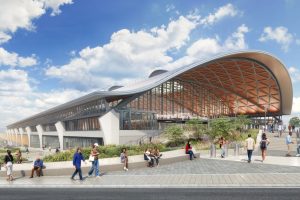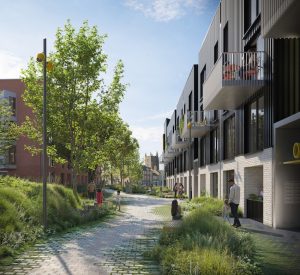Birmingham set to be at forefront of flexible office boom

Birmingham is set to be at the forefront of flexible office sector as it looks to grow to 1.2m sq ft by 2023, with the city offering the “perfect storm” of opportunity for flex operators due to the high proportion of start-ups and entrepreneurs.
WeWork currently stands as the most significant entrant in the city, securing a hat-trick of deals, taking 229,042 of space in total at 55 Colmore Row, Louisa Ryland House and 6 Brindleyplace.
Once WeWork centres come on stream, flex stock levels will rise to 961,000 sq ft from 732,000 sq ft, representing 5.5 per cent of the city’s current office market rising to 6.9% in the next four years, according to a new Flex Space report from JLL.
The flex market represents anything from a desk to office space provided fitted out and on flexible terms.
While still in its infancy, the sector has experienced significant growth over the last few years, particularly in London where stock levels already stand at 6.3% of the total office market.
Regional cities now offer the most potential for growth as they benefit from rapid urbanisation and an influx of young people heading for new employment opportunities and improved quality of life, says the report.
Kelvin Craddock, director tenant representation at JLL, said: “Birmingham looks set to be at the forefront of the flex office market expansion in the regional cities. HS2 is also proving a significant attraction and behind many current occupier decisions, combined with investment in improved connectivity across the region, a burgeoning housing market and major regeneration.
“Larger corporates also want flex space as part of their real estate portfolios for the unique culture and environments they offer to help attract and retain talent.”
According to the report, flex space will represent as much as 30% of corporate portfolios by 2030.
“Birmingham now offers the perfect storm of opportunity for flex operators, says Craddock. “With 75% of the city’s population under 35, it’s exactly the generation pushing for greater flexibility in how they work and live, which in turn is creating a consumerisation of the workplace.
“Space is now considered to be a service and operators are developing their business models much like the hospitality industry, where service is so important.
“Many conventional landlords are now reviewing their portfolios. Revenue for flexible space is typically higher than traditional leases, and landlords are benefiting from the uplift in the value of their asset.
“What we are seeing emerge,” says Craddock, “are hybrid offices, combining long and short-term lease opportunities, plus a variety of space options in one building, with service, environment and experience at its core.
“As we continue to search for further acquisition opportunities for WeWork, we expect more operators to enter the flex market in Birmingham. With growing competition, however, only those who are clear about their brand, culture and unique selling point will prosper.”









